Alberta
Updated: Cpl Courtney McKinley is first female soldier from 41 Signal Regiment to deploy from Red Deer in four decades

Correction: Cpl McKinley is the first female soldier from “41 Signal Regiment (2 Sqn)” in Red Deer to deploy overseas. There have been as many as 5 female soldiers from Red Deer that have deployed since 1979/80. In the original version of this article I incorrectly stated that Cpl McKinley was the first female to deploy in 4 decades. She is the first female “signaller” to deploy in that time. My apology.
What follows is the original article, updated for accuracy.
As we go about our busy lives in Red Deer, rarely do we think of the soldiers that work, live, and train in our city. The reality is that we have a growing group of soldiers here, members of 41 Signal Regiment (2 sqn) and 78th Field Battery, a unit of the 20th Field Artillery Regiment.
Given our lack of knowledge at what goes on inside Cormack Armoury and the military in general, it’s fair to say many of us wouldn’t realize that it’s very rare for a female soldier from Red Deer to deploy on an international operation. Forty years ago this past month Cheryl Bolander, Connie Kaastrup, Karen Russel, Bev Scott and Joan Verbonic returned from deployment to Germany. In the ensuing years, there have been as many as 5 deployments of female soldiers from the city.
Those numbers were bolstered recently when Cpl Courtney McKinley Of 41 Signal Regiment took up the call and volunteered for deployment to Latvia in July 2019 for six months. McKinley returned recently to resume her studies in political science at the U of A.
Operation Reassurance in Latvia is part of NATO’s assurance and deterrence measures ained to reinforce NATO’s collective defence and shows the strength of solidarity of our Allied forces.
The CAF support to NATO helps make Central and Eastern Europe more secure and stable. It also shows that the CAF is a professional force that is ready for any task.
I got together recently with Cpl McKinley to talk about her unique experience.
The interview appears below, lightly edited for brevity.
How long have you been a member of the Armed Forces and what led you down that path?
McKinley: I’ve been a member for about 3 years. I grew up in Wainwright, and as you know, that’s a military town. It really influenced me and I’ve always thought it was a really cool thing for people to do, and I appreciated it myself, and it’s proven to lead me into some very cool experiences.
What was your role there and why did you want to do deploy?
McKinley: Well, Canada has been deploying an increasing amount of troops to Latvia the past several years as part of NATO’s Enhanced Forward Prescence in the Balkins with Canada being the Framework Nation for Latvia so many of my colleagues from the Regiment and from the Brigade in general had previously deployed and I heard alot of positive feedback. It’s not a combat tour, but it’s more of an exercise-based mission and it really allows members to hone in on the roles of their trade and really become professional soldiers. As a Reservist, it allowed me to take my theoretical knowledge and apply it to real world situations. What led me to deploy is I wanted to put my training to a practical use to become a better soldier in the future.

What was your role?
McKinley: Being a Signaller in the Canadian Army means that you are responsible for establishing all types of communications systems. Further you need to be able to track what is going on in the battle and relay that information from the elements in the field back up to the Commanders. You are responsible for everything regarding communications in a military situation.
What did you learn from soldiers from other countries?
McKinley: We worked with militaries from approximately 9 different countries. When you form an international NATO battle group, it’s an amazing dynamic because all of these different militaries are expert in some things, but not necessarily everything, Canada included. We were all able to learn from each other and bring that knowledge back to our countries and now work with our peers to advance our own skills. Montenegro for instance, is a very small country and their troops are getting some pretty extensive training on how NATO operates as a whole, and Montenegro, being the newest member of the alliance, is gaining significant knowledge and experience. In my case, I don’t think I’m exceptional, but I did have the flexibility in my life, and was readily available, and I really wanted to do it.
 What did this experience do for you personally?
What did this experience do for you personally?
McKinley: I guess I gained the knowledge of how other countries perceive Canada and our fighting force. And the ability to make friends with people who do not speak a common language using google translater. And learning that everyone has the same problems and challenges. One example would be, when you supply a mass amount of equipment to a group like this, there are problems – with your leadership, officers, and just personal things. One thing that really stood out for me was at Christmas. We were all away from home, it was the end of the mission, we were all tired of being away, but being able to spend time with our peers and newly-found friends was pretty awesome.
You’re studying Political Science at the U of A. Do you intend to continue with your military career and does your education align with this?
McKinley: I have no plan to leave my military life. Me studying politics plays more into the nature of my curiousity in the world around me and my interest in the military, and why I wanted to deploy in the first place.
What would you say to an employer about why a reservist would be a great asset to their company or organization?
McKinley: I would say that throughout my time in the reserves, what I have learned is alot of practical skills. And that goes from how to work with people from different nationalities, down to vehicle mechanics, and how those all play into a working environment. In the military you are taking policy put in place by NATO, really taking political theory and applying it right down to maintaining the equipment needed to make sure that mission succeeds. As a troop on the ground you’re part of the gears that are actually working to a successful mission and feel like I’ve seen all levels of that in my brief military career. The values you see in the military would be working together on a team and working towards a common goal with that team. It’s not about the individual. That’s probably the biggest lesson I’ve learned from my military career that can transcend into my civilian work. And trusting in leadership to take you where you need to be in order to be successful.
The military has made diversity a priority over the past few years. What would you say to someone, a female particularly, who is considering a career in the forces?
McKinley: It’s important for them to know that all members of the army are treated equally and are all held to the same standard. I can only speak for myself, and in my experience, yes it is a male-dominated field but I’ve never felt at any point that I was less than because I was a woman, and I guess I’d encourage them to join if they’re students or looking for practical skills development. You will have the same expectations if you are a man or a woman, and I’ve never experienced any objectification in my threee years. I’d encourage women to experience for themselves and listen to the experiences of women who have been in the forces. I think women are starting to realize that the military is very much a field for women as well.

Cpl Courtney McKinley, 41 Signal Regiment, Canadian Army Reserve
Background:
In June 2017, the CAF deployed about 540 Canadian Army members to Latvia. They are leading a NATO battlegroup comprising military members from several nations, including:
- Albania
- Canada
- Czech Republic
- Italy
- Montenegro
- Poland
- Slovakia
- Slovenia
- Spain
This battlegroup works as part of the Latvian Land Forces Infantry Brigade. It is based at Camp Adazi, Latvia.
Mission timeline
- April 29, 2014 – the CAF sent its first CF-188 Hornet Air Task Force to Europe. Since then, the CAF had periodically sent air task forces to Central and Eastern Europe.
- May 3, 2014 – the CAF sent a Land Task Force to Central and Eastern Europe, based in Poland.
- May 13, 2014 – the CAF sent a Maritime Task Force of one frigate to Central and Eastern Europe.
- June 19, 2017 – Canadian-led NATO enhanced Forward Presence battlegroup Latvia was stood up during a ceremony at Camp Adazi, Latvia.
- August 17, 2017 – The Land Task Force in Poland completed its final deployment.
- July 10, 2018 – The Prime Minister of Canada announced the renewal of Canada’s contribution to NATO’s enhanced Forward Presence until March 2023. The CAF will also increase the number of members deployed to Latvia from 455 to 540.
Past Deployments
CAF members have continuously supported NATO assurance and deterrence measures since 2014.
- To date, seven different ships have contributed to this operation; three of them have deployed twice.
- From May 2014 to August 2017, over 1000 soldiers deployed in eight rotations to Europe. Based at Drawsko Pomosrkie Training Area, Poland, they regularly took part in exercises with allies and partners.
- The CAF has sent an air task force to three different countries: Romania (four times), Iceland, and Lithuania.
If you’ve enjoyed this article, please share it. Here’s a link to a documentary from 2017 that highlights Alberta soldiers who have deployed overseas.

Lloyd Lewis is Honorary Lt. Colonel of 41 Signal Regiment and serves on the Board of the AB Chapter of the CFLC. He is President of Todayville, a digital media company based in Alberta.
Alberta
Ford and Trudeau are playing checkers. Trump and Smith are playing chess
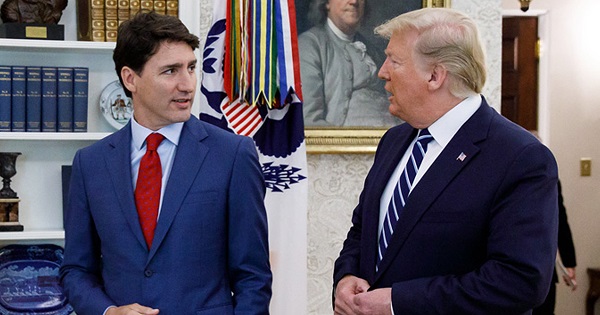
By Dan McTeague
Ford’s calls for national unity – “We need to stand united as Canadians!” – in context feels like an endorsement of fellow Electric Vehicle fanatic Trudeau. And you do wonder if that issue has something to do with it. After all, the two have worked together to pump billions in taxpayer dollars into the EV industry.
There’s no doubt about it: Donald Trump’s threat of a blanket 25% tariff on Canadian goods (to be established if the Canadian government fails to take sufficient action to combat drug trafficking and illegal crossings over our southern border) would be catastrophic for our nation’s economy. More than $3 billion in goods move between the U.S. and Canada on a daily basis. If enacted, the Trump tariff would likely result in a full-blown recession.
It falls upon Canada’s leaders to prevent that from happening. That’s why Justin Trudeau flew to Florida two weeks ago to point out to the president-elect that the trade relationship between our countries is mutually beneficial.
This is true, but Trudeau isn’t the best person to make that case to Trump, since he has been trashing the once and future president, and his supporters, both in public and private, for years. He did so again at an appearance just the other day, in which he implied that American voters were sexist for once again failing to elect the nation’s first female president, and said that Trump’s election amounted to an assault on women’s rights.
Consequently, the meeting with Trump didn’t go well.
But Trudeau isn’t Canada’s only politician, and in recent days we’ve seen some contrasting approaches to this serious matter from our provincial leaders.
First up was Doug Ford, who followed up a phone call with Trudeau earlier this week by saying that Canadians have to prepare for a trade war. “Folks, this is coming, it’s not ‘if,’ it is — it’s coming… and we need to be prepared.”
Ford said that he’s working with Liberal Finance Minister Chrystia Freeland to put together a retaliatory tariff list. Spokesmen for his government floated the idea of banning the LCBO from buying American alcohol, and restricting the export of critical minerals needed for electric vehicle batteries (I’m sure Trump is terrified about that last one).
But Ford’s most dramatic threat was his announcement that Ontario is prepared to shut down energy exports to the U.S., specifically to Michigan, New York, Wisconsin, and Minnesota, if Trump follows through with his plan. “We’re sending a message to the U.S. You come and attack Ontario, you attack the livelihoods of Ontario and Canadians, we’re going to use every tool in our toolbox to defend Ontarians and Canadians across the border,” Ford said.
Now, unfortunately, all of this chest-thumping rings hollow. Ontario does almost $500 billion per year in trade with the U.S., and the province’s supply chains are highly integrated with America’s. The idea of just cutting off the power, as if you could just flip a switch, is actually impossible. It’s a bluff, and Trump has already called him on it. When told about Ford’s threat by a reporter this week, Trump replied “That’s okay if he does that. That’s fine.”
And Ford’s calls for national unity – “We need to stand united as Canadians!” – in context feels like an endorsement of fellow Electric Vehicle fanatic Trudeau. And you do wonder if that issue has something to do with it. After all, the two have worked together to pump billions in taxpayer dollars into the EV industry. Just over the past year Ford and Trudeau have been seen side by side announcing their $5 billion commitment to Honda, or their $28.2 billion in subsidies for new Stellantis and Volkswagen electric vehicle battery plants.
Their assumption was that the U.S. would be a major market for Canadian EVs. Remember that “vehicles are the second largest Canadian export by value, at $51 billion in 2023 of which 93% was exported to the U.S.,”according to the Canadian Vehicle Manufacturers Association, and “Auto is Ontario’s top export at 28.9% of all exports (2023).”
But Trump ran on abolishing the Biden administration’s de facto EV mandate. Now that he’s back in the White House, the market for those EVs that Trudeau and Ford invested in so heavily is going to be much softer. Perhaps they’d like to be able to blame Trump’s tariffs for the coming downturn rather than their own misjudgment.
In any event, Ford’s tactic stands in stark contrast to the response from Alberta, Canada’s true energy superpower. Premier Danielle Smith made it clear that her province “will not support cutting off our Alberta energy exports to the U.S., nor will we support a tariff war with our largest trading partner and closest ally.”
Smith spoke about this topic at length at an event announcing a new $29-million border patrol team charged with combatting drug trafficking, at which said that Trudeau’s criticisms of the president-elect were, “not helpful.” Her deputy premier Mike Ellis was quoted as saying, “The concerns that president-elect Trump has expressed regarding fentanyl are, quite frankly, the same concerns that I and the premier have had.” Smith and Ellis also criticized Ottawa’s progressively lenient approach to drug crimes.
(For what it’s worth, a recent Léger poll found that “Just 29 per cent of [Canadians] believe Trump’s concerns about illegal immigration and drug trafficking from Canada to the U.S. are unwarranted.” Perhaps that’s why some recent polls have found that Trudeau is currently less popular in Canada than Trump at the moment.)
Smith said that Trudeau’s criticisms of the president-elect were, “not helpful.” And on X/Twitter she said, “Now is the time to… reach out to our friends and allies in the U.S. to remind them just how much Americans and Canadians mutually benefit from our trade relationship – and what we can do to grow that partnership further,” adding, “Tariffs just hurt Americans and Canadians on both sides of the border. Let’s make sure they don’t happen.”
This is exactly the right approach. Smith knows there is a lot at stake in this fight, and is not willing to step into the ring in a fight that Canada simply can’t win, and will cause a great deal of hardship for all involved along the way.
While Trudeau indulges in virtue signaling and Ford in sabre rattling, Danielle Smith is engaging in true statesmanship. That’s something that is in short supply in our country these days.
As I’ve written before, Trump is playing chess while Justin Trudeau and Doug Ford are playing checkers. They should take note of Smith’s strategy. Honey will attract more than vinegar, and if the long history of our two countries tell us anything, it’s that diplomacy is more effective than idle threats.
Dan McTeague is President of Canadians for Affordable Energy.
Alberta
Your towing rights! AMA unveils measures to help fight predatory towing
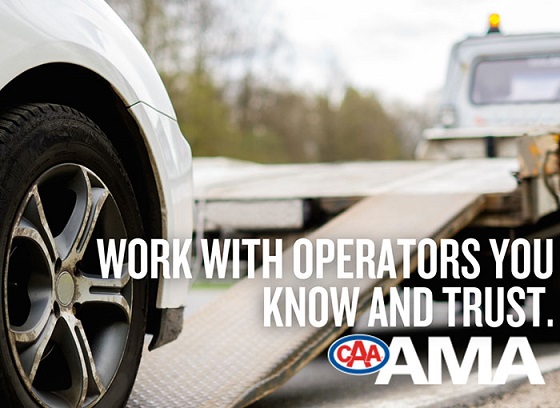
From the Alberta Motor Association
Know Before the Tow: Towing Rights in Alberta
Predatory towing is a growing concern in major cities across the province. The Alberta Motor
Association (AMA), in partnership with the Calgary Police Service and Calgary Fire Department,
wants to ensure Albertans are not only aware of this emerging issue but also know how to stop
it.
Today, AMA launches Know Before the Tow—a new, provincewide awareness campaign that
empowers Albertans with the knowledge needed to stay confident and in control when faced with
a tow scam. The campaign features a list of five key towing rights that every Alberta driver should
know:
1. You have the right to refuse unsolicited towing services.
2. You have the right to choose who tows your vehicle, and where, unless
otherwise directed by police.
3. You have the right to access your vehicle to retrieve personal items during a
storage facility’s business hours.
4. You have the right to ask if the towing company receives a kickback for taking
your vehicle to a particular storage facility or repair shop.
5. You have the right to a quote prior to service, and an itemized invoice prior to
making payment.
“Being in a collision or broken down at the roadside is stressful enough; the last thing any Albertan
needs is high pressure from an unscrupulous tower,” says Jeff Kasbrick, Vice-President,
Advocacy and Operations, AMA. “These towing rights are clear and remind every Albertan that
they’re in the driver’s seat when it comes to who they choose to tow their vehicle.”
Edmonton and Calgary in particular are seeing increasing reports of predatory towing. Unethical
operators will arrive at a collision or breakdown scene uninvited, create a false sense of urgency
to remove the vehicle, and ultimately leave drivers facing huge fees.
Starting today, Albertans can visit ama.ab.ca/KnowBeforeTheTow to download a digital copy of
their towing rights, helping them feel confident if faced with a tow scam. And soon, all AMA centres
will offer free print versions, which are small enough to tuck in a glovebox.
“Alberta’s towing industry is still highly reputable, with the vast majority of operators committed
to fair and professional service. In fact, AMA and our roadside assistance network is proud to
represent 80% of all private-passenger tows in the province, so our members can be confident
that we’ll always protect them—just as we have for nearly 100 years,” says Kasbrick.
“By knowing your rights and choosing trusted providers like AMA, you can avoid unnecessary
stress, costs, and uncertainty. Because the road to recovery after a collision shouldn’t have to
include fighting for your vehicle.”
Sergeant Brad Norman, Calgary Police Service Traffic Section, says law enforcement continues
to work diligently with first responders and community partners like AMA to put the brakes on
predatory towers, who “are showing up at collision sites and pressuring overwhelmed and
frightened victims into paying high towing rates.”
“Our priority is to ensure the safety of collision victims, the public, and first responders at
collision sites. Part of this effort is educating motorists about their rights so that they Know
Before the Tow that they can say no to unsolicited towing services and choose a reputable
tower of their choice instead,” says Norman. “No one deserves to be taken advantage of after
being involved in a collision.”
To learn more, and to view an expanded version of Alberta towing rights, visit
ama.ab.ca/KnowBeforeTheTow
-
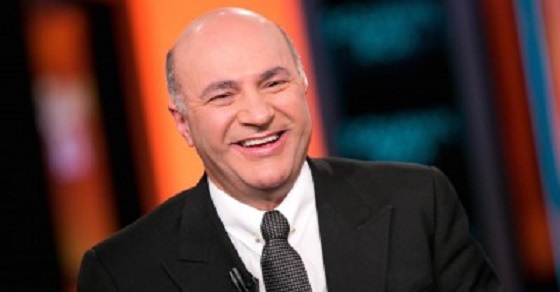
 Alberta17 hours ago
Alberta17 hours agoProposed $70 billion AI data centre in MD of Greenview could launch an incredible new chapter for western Canadian energy
-
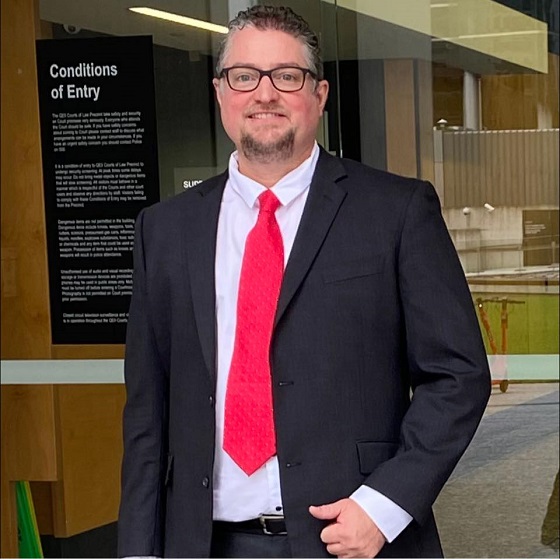
 COVID-192 days ago
COVID-192 days agoAustralian doctor who criticized COVID jabs has his suspension reversed
-

 Business2 days ago
Business2 days agoMassive growth in federal workforce contributes to Ottawa’s red ink
-

 Alberta13 hours ago
Alberta13 hours agoYour towing rights! AMA unveils measures to help fight predatory towing
-
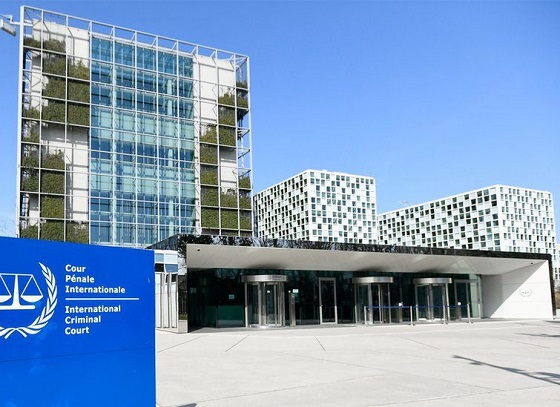
 Frontier Centre for Public Policy2 days ago
Frontier Centre for Public Policy2 days agoFalse Claims, Real Consequences: The ICC Referrals That Damaged Canada’s Reputation
-
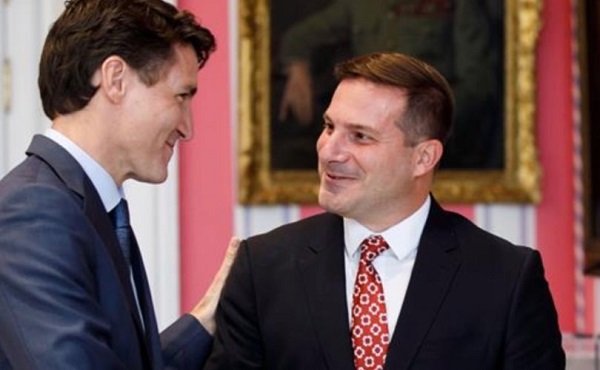
 COVID-192 days ago
COVID-192 days agoFormer Trudeau minister faces censure for ‘deliberately lying’ about Emergencies Act invocation
-

 National1 day ago
National1 day agoWhen’s the election? Singh finally commits. Poilievre asks Governor General to step in
-
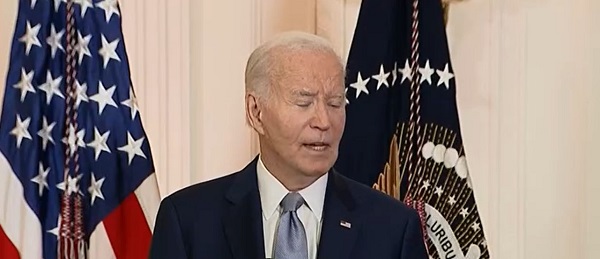
 Daily Caller1 day ago
Daily Caller1 day agoParty Leaders Exposed For ‘Lying’ About Biden Health




